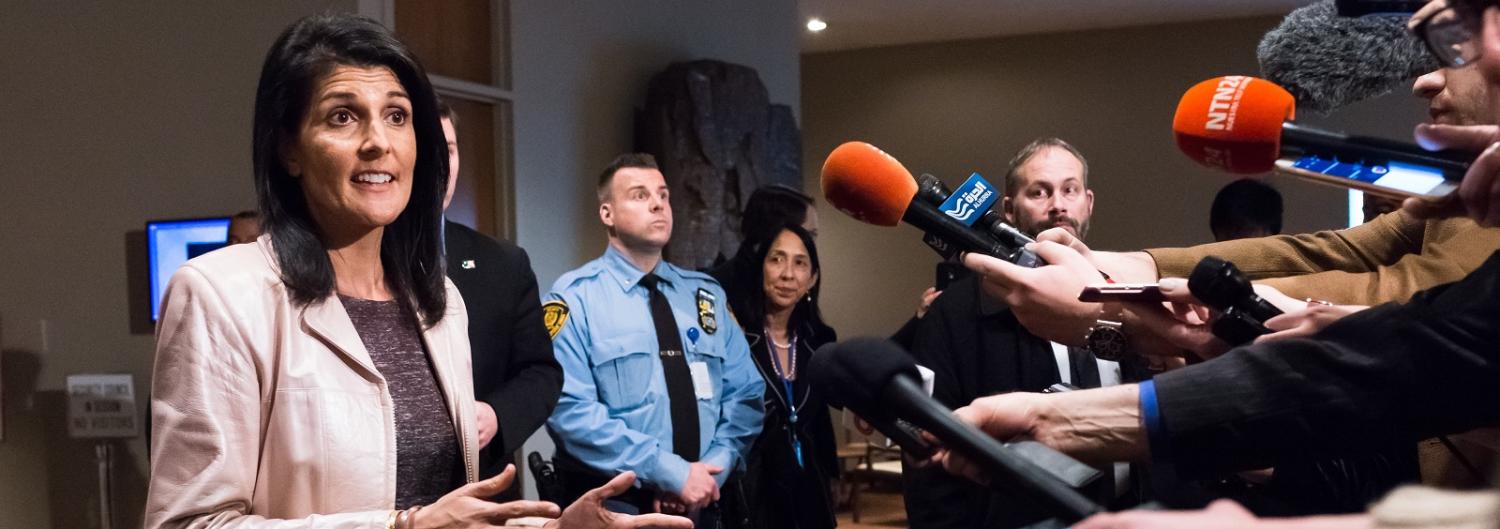This week US President Donald Trump is due to meet Israeli Prime Minister Benjamin Netanyahu. On the agenda will be Iran and, more specifically, the nuclear deal reached between Iran and five other major powers in July 2015 that both men oppose.
Late last month an attempted ballistic missile test by Iran elicited a strong reaction from the newly installed Trump administration. The White House said the missile launch 'violates the spirit' of the 2015 Joint Comprehensive Plan of Action Nuclear agreed between Iran and the governments of Britain, France, Russia, China, the US and Germany and enacted shortly after by UN Security Council Resolution 2231. A statement from national security advisor Michael Flynn said the launch was 'in defiance' of the UN resolution, which calls upon Iran 'not to undertake any activity related to ballistic missiles designed to be capable of delivering nuclear weapons, including launches using such ballistic missile technology'.
Iran disagreed. Iranian Foreign Ministry Spokesman Bahram Qassemi stated 'none of the country’s ballistic missiles had been designed to carry a nuclear warhead' and they were, therefore, not banned under the UN Resolution. A few days later, on 3 Feb, the Trump administration announced new sanctions on Iranian individuals and companies and cited Iran's ballistic missile program as evidence of Iran's threat to 'the region, to our partners worldwide and to the United States'.
Under the terms of the 2015 deal, Iran agreed to eliminate its stockpile of medium-enriched uranium, cut its stockpile of low-enriched uranium by 98%, and reduce by about two-thirds the number of its gas centrifuges for 13 years. Iran also pledged to limit its uranium-enrichment activities and agreed to allow the International Atomic Energy Agency regular access to monitor compliance in exchange for relief from the US, European Union, and UN Security Council nuclear-related economic sanctions. There is no provision in the text that prevents Iran from conducting ballistic missile tests. This was confirmed in a letter to Senator Marco Rubio, from John Kerry, Secretary of State John Kerry when the deal was struck.
In regards to what Iran agreed to in the UN Resolution 2231, there is an important difference in the terms used in this resolution and that employed in Resolution 1929, agreed in 2010. That document stated Iran 'shall not undertake' any activity related to ballistic missiles'. In contrast, last year's resolution Iran 'is called upon' not to undertake any activity related to ballistic missiles.
While concern about Iran's ballistic missile tests predates the Trump presidency, it seems the Trump administration is determined to turn up the heat, a determination that would be in keeping with Trump's promises on the campaign trail to undo the nuclear deal. In a speech to the pro-Israel lobbying group, AIPAC, during the presidential campaign, Trump promised to stand up to Iran's ' aggressive push to destabilize and dominate the region' and said that 'at the very least' he would restructure the terms of the Iran deal so that Iran was not allowed to test ballistic missiles.
At the request of the US, the UN Security Council's held an emergency meeting on 31 January to consider the latest Iranian missile test. While the new US ambassador to the UN, Nikki Haley called the test 'unacceptable', the Council deferred any ruling, opting instead to request a report on the missile launch from UN Secretary-General Antonio Guterres. The Council also requested the test should be studied at the sanctions committee formed in accordance with the UN Resolution 2231.
Precedent seems to suggest the Security Councıl will not take any action beyond issuing a statement. On 14 March 2016 Security Council members discussed Iran’s ballistic missile launches on 8 and 9 March 2016. No punitive action was taken.
The US faces some stiff opposition on its stance. Russia, as one of the permanent members of the Security Council, has the power to veto adoption of any substantive draft Council resolution, and Russia has made its views on this matter very clear. After the US pressed for the emergency UN Security Council meeting, Russian officials said the missile test didn't violate the UN Resolution.
The Trump administration is reportedly exploring how it could renegotiate the 2015 agreement, a move strongly supported by Israel. However other signatories to the deal are opposed to any revision. Federica Mogherini, the European Union Foreign Policy Chief said: 'The Deal is neither unilateral nor bilateral, meaning that it cannot be renegotiated by one party alone. So it's a multilateral framework and we are ready to protect and to preserve it'. Russia, China and the UK have all recently expressed their support for the agreement. Iran has flatly refused to renegotiate and said any manner of negotiations would be 'meaningless'.
Consequently, although the US and Israeli leaders appear to be on the same page when it comes to the future of the deal, there is little other support for renegotiation.

